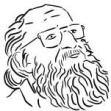Contributions of Paulo Freire's legacy to higher education
reflections of professor Nita Freire
DOI:
https://doi.org/10.35699/2237-5864.2021.35047Keywords:
Theory of Knowledge, Paulo Freire, Higher education, IlliteracyAbstract
This text is the result of an interview with professor Ana Maria Araújo Freire (Nita Freire) about the life and work of Paulo Freire (1921-1997), due to the 100th anniversary of the author's birth. The interview focused on the legacy of Freire’s thoughts for Brazilian education in general, and for higher education in a specific way. Conducted electronically in May 2021 – in the context of the covid-19 pandemic –, the interview was led with a semi-structured questionnaire, previously forwarded to Nita Freire, who answered the questions and commented on them. Through the interview, the extent of Paulo Freire's theory of knowledge is observed, which is the basis for thinking about an emancipatory and transformative education in various contexts, including universities.
Downloads
References
BRASIL. Lei nº 12.612, de 13 de abril de 2012. Declara o educador Paulo Freire Patrono da Educação Brasileira. Brasília, DF: Presidência da República, 2012. Disponível em: http://www.planalto.gov.br/ccivil_03/_ato2011-2014/2012/lei/l12612.htm. Acesso em: 21 jul. 2021.
FREIRE, Ana Maria Araújo. Paulo Freire: Uma história de vida. São Paulo: Paz & Terra, 2017.
FREIRE, Paulo. Pedagogia da esperança: um reencontro com a pedagogia do oprimido. São Paulo: Paz & Terra, 2014.
GREEN, Elliot D. What are the most-cited publications in the social sciences (according to Google Scholar)?. Impact of Social Sciences Blog, 2016. Disponível em: https://blogs.lse.ac.uk/impactofsocialsciences/2016/05/12/what-are-the-most-cited-publications-in-the-social-sciences-according-to-google-scholar/. Acesso em: 29 jul. 2021.

Downloads
Published
Issue
Section
License
Copyright (c) 2021 Ana Maria Araújo Freire, Daniel Santos Braga, Thainara Cristina de Castro Ariovaldo

This work is licensed under a Creative Commons Attribution 4.0 International License.
Authors who publish in this journal retain the copyright and grant the journal the right of first publication, with the work simultaneously licensed under the Creative Commons Attribution License which allows the sharing of work with acknowledgment of authorship and initial publication in this journal.
Authors are authorized to take additional contracts separately, for non-exclusive distribution of the version of the work published in this journal (e.g. publish in institutional repository or as a book chapter), with acknowledgment of authorship and initial publication in this journal.
Open access policy:
Revista Docência do Ensino Superior is an Open Access journal, which means that all content is available free of charge, at no cost to the user or their institution. Users may read, download, copy, distribute, print, search, or link to the full texts of the articles, or use them for any other legal purpose, without seeking prior permission from the publisher or author, provided they respect the license to use the Creative Commons used by the journal. This definition of open access is in line with the Budapest Open Access Initiative (BOAI).


























